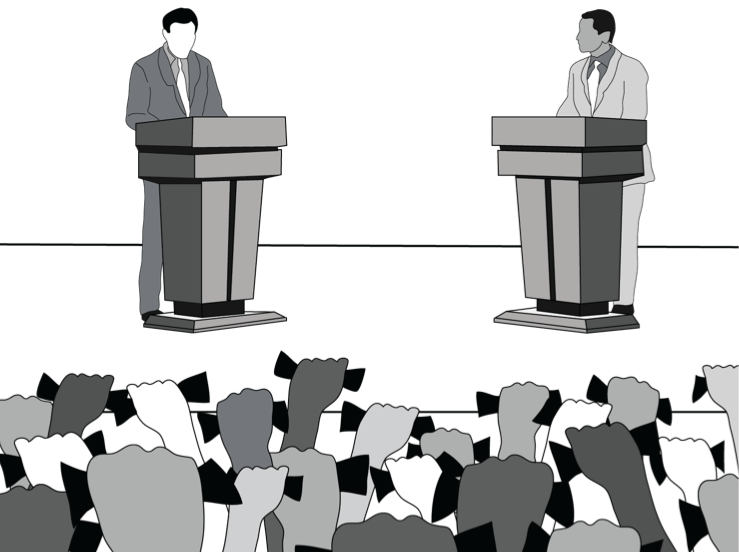This November, Washington voters will be voting on Initiative 1464, a statewide measure that would establish a publicly funded campaign finance system.
If it’s passed, Washington state residents will receive three $50 vouchers to direct towards eligible state campaigns. To fund this, Initiative 1464 will repeal the sales tax exemption for visitors from Montana, Oregon and other states without sales tax.
The initiative was first proposed by Spokane city councilman Ben Stuckart, and it now has the support of organizations including Represent Us, End Citizens United and Young Democrats of Washington. Among the initiative’s opponents are former U.S. Senator Slade Gorton and former Washington Secretary of State Sam Reed.
“The pro campaign is definitely better-funded than the con campaign, and it reflects similar initiatives being pushed in other states like California,” said political science professor Patrick Schoettmer. “So this is seen as sort of an organized attempt to try to circumvent or address some of the concerns they see at the national level from the Citizens United [decision].”
Schoetter said that one major argument in favor of the initiative is that it creates a public funding mechanism to provide people with resources.
“It could empower people who traditionally don’t feel like they have much of an opportunity to be able to compete for those kinds of offices to compete,” Schoetter said.
While the attempt to build a new campaign finance system is the most attention-grabbing, the initiative also attempts to address the “revolving door” of political lobbying through which politicians can also act as lobbyists, and it restricts the ways that a Super-PAC can coordinate with a campaign.
“There’s so much power and influence that comes from these companies…so giving more power to individuals…is really important,” said Mirella Galang, junior humanities for teaching major.
One potential downside is that the initiative would repeal tax exemption for residents from states without sales tax, which could hurt businesses that rely on traffic across the border, according to Schoettmer.
“A lot of students are from Oregon or [Montana],” he said. “So they might be personally affected when they cross the border themselves, or they may have family that are impacted as well.”
Some also argue that this kind of legislation should wait a couple of years.
“This particular initiative seems to be modeled on something similar that has been done for the city of Seattle, and something that we’ll see kick in in 2017 in the upcoming city council and city attorney elections,” said Schoettmer. “And so, one criticism that some make is that rather than jump in and start trying to do this right away, some say let’s wait and see how this actually plays out in Seattle before we bump it up to the next league.”
For better or for worse, this election has the potential to result in some significant changes.
“I think that there’s a lot of exciting [initiatives],” said Civic Engagement Director Owen Goetze. “[Initiative 1464] seems very interesting.”
Students will have to register in Washington state if they want to vote on this initiative.
“Monday [was] the last day we [could] help people register to vote,” Goetze said. “Washington voters can register up until the 31st, but they have to do it on their own.”
At this point, to register to vote for the 2016 election, students need to contact the King County Department of Elections.
“Google and Facebook have some really good apparatuses for typing in whatever state you’re in, and it can direct you to that secretary of state’s website,” Goetze said.
In the end, both Galang and Goetze want to emphasize the importance of voting.
“I think there’s a lot of exciting things to go out there and vote for, even if you don’t have a partial swing towards any of the presidential candidates,” Goetze said.
“It affects all of us, no matter who you are,” Galang said. “Policy and politicians are going to affect us whether we know it or not.”
Editor may be reached at
news@su-spectator.com









